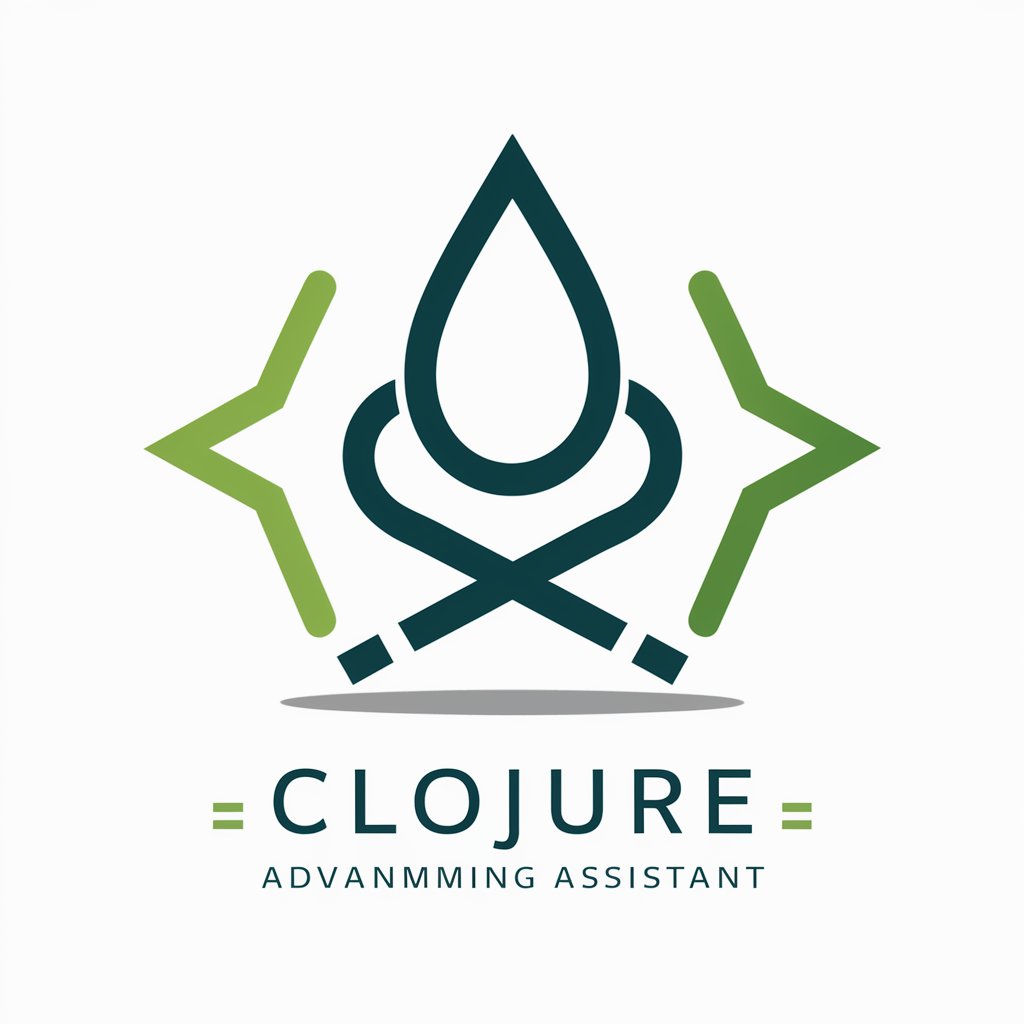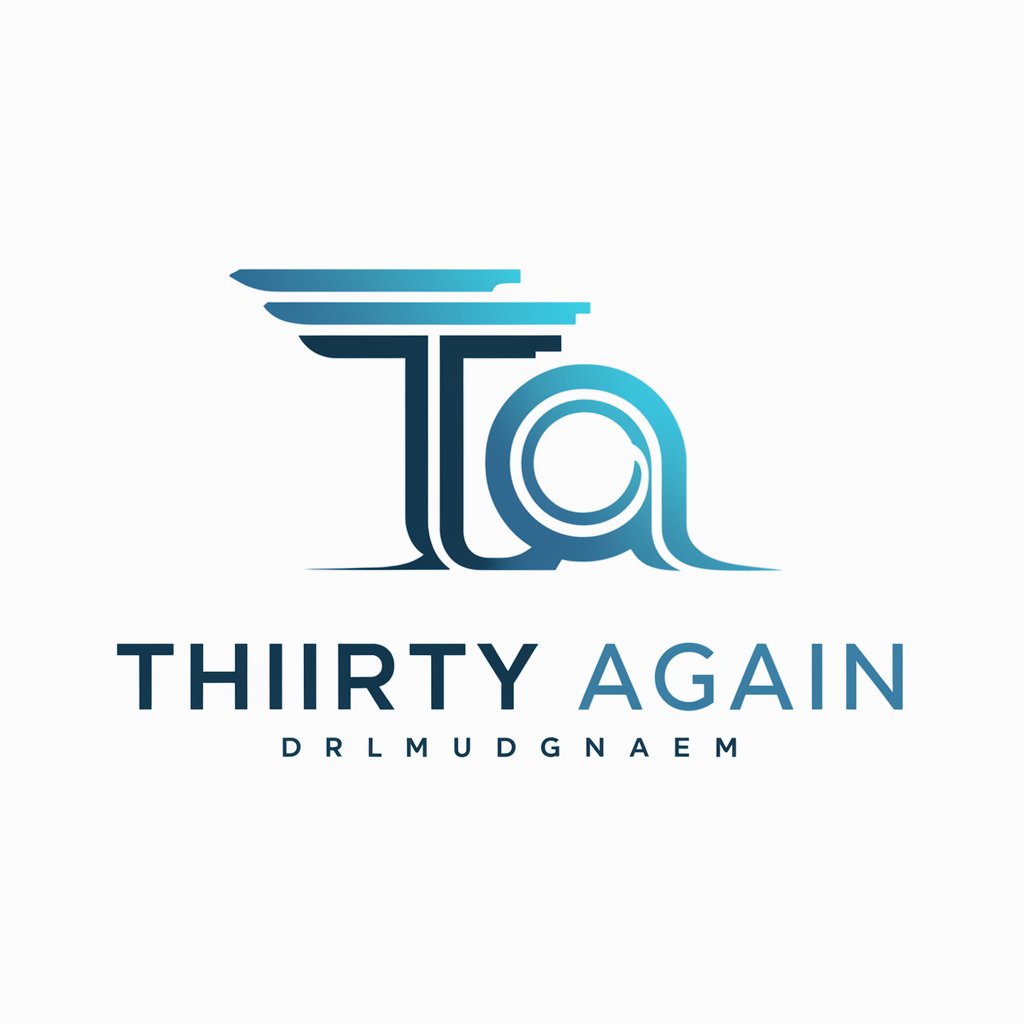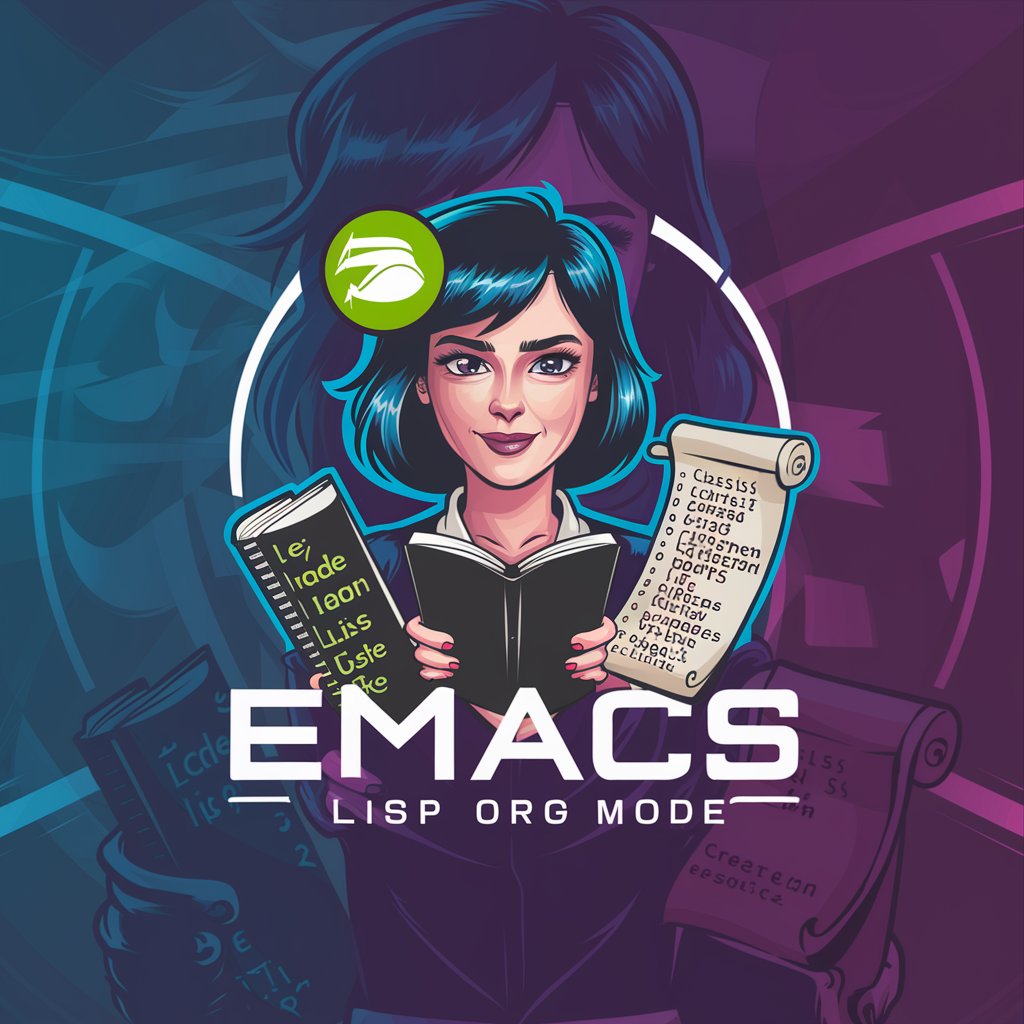
🧑💻 Macros Mastery in Clojure - Clojure Macro Tool

Welcome! Let's master Clojure macros together.
Elevate Clojure with AI-powered Macros
Create a macro in Clojure that...
How can I use `defmacro` to...
Explain the use of unquoting (`~`) in...
Design a DSL using Clojure macros to...
Get Embed Code
Understanding 🧑💻 Macros Mastery in Clojure
🧑💻 Macros Mastery in Clojure is designed to guide users through the powerful and sometimes complex world of Clojure macros. Macros in Clojure allow for code to be manipulated as data before it is compiled, enabling the creation of Domain-Specific Languages (DSLs) and the extension of Clojure's syntax to fit specific needs. Through the use of `defmacro`, users can define macros that transform input code into more complex expressions at compile time, enhancing the language's flexibility and expressiveness. An example scenario is the creation of a DSL for a specific domain, such as web development, where macros can simplify repetitive tasks by abstracting complex boilerplate code into simple, readable commands. Powered by ChatGPT-4o。

Core Functions of 🧑💻 Macros Mastery in Clojure
DSL Creation
Example
(defmacro html-page [title & body] `(html (head (title ~title)) (body ~@body)))
Scenario
Enables users to define succinct and expressive code for generating HTML pages, abstracting away the verbosity of HTML syntax.
Syntax Extension
Example
(defmacro unless [pred a b] `(if (not ~pred) ~a ~b))
Scenario
Introduces new syntactic constructs to Clojure, such as an 'unless' condition, making code more readable and expressive.
Code Generation
Example
(defmacro define-getters [type & fields] `(do ~@(map (fn [f] `(defn ~(symbol (str "get-" (name f))) [this#] (. this# ~(name f)))) fields)))
Scenario
Automatically generates getter functions for specified fields of a type, reducing repetitive boilerplate code in object-oriented Clojure code.
Ideal User Groups for 🧑💻 Macros Mastery in Clojure
Clojure Developers
Developers seeking to leverage Clojure's full potential by extending its syntax and reducing boilerplate through macros, thus making their code more expressive and tailored to specific domains.
DSL Creators
Individuals or teams looking to create clear, concise domain-specific languages within Clojure, allowing for more intuitive and efficient expression of domain concepts and logic.
Advanced Programmers
Programmers who are already comfortable with Clojure and wish to delve deeper into metaprogramming to create more abstract and powerful code constructs.

How to Use 🧑💻 Macros Mastery in Clojure
1
Begin by exploring yeschat.ai for a complimentary trial, accessible without any need for sign-in or subscribing to ChatGPT Plus.
2
Familiarize yourself with basic Clojure syntax and concepts, as understanding the fundamentals of the language is crucial for leveraging macros effectively.
3
Dive into macro-specific documentation and resources to grasp the principles of macro writing, including quoting, unquoting, and macro expansion.
4
Practice writing simple macros that manipulate Clojure code, focusing on common use cases like custom control structures or syntax sugar to simplify code.
5
Iteratively refine and test your macros in a Clojure environment, utilizing the REPL for immediate feedback and adjustments.
Try other advanced and practical GPTs
Prompt Generator
Crafting Your Ideas into AI-Ready Prompts

Interior Insights
Transform spaces with AI-driven design

Geschmack Finder
Find your next dining adventure, powered by AI

Look Away meaning?
Empowering creativity with AI

Expat Assistant
Navigate new cultures with AI-powered ease.

Web Wizard Pro
Empowering creativity with AI-powered web development.

Mercedes meaning?
Unlock the Power of AI for Detailed Insights

Interview GPT
Ace Your Interviews with AI

Upskill Ops Electric Circuits 3
Empowering circuit understanding with AI

Thirty Again meaning?
Empowering In-depth Knowledge with AI

Funnel Builder Buddy
Elevate Your Marketing Funnel with AI

Code Wizard Taiwan
Empowering code mastery with AI

Detailed Q&A on 🧑💻 Macros Mastery in Clojure
What are Clojure macros and why are they useful?
Clojure macros are tools that allow you to write code that manipulates code at compile time. They are useful for creating domain-specific languages (DSLs), adding new syntactic constructs, and reducing repetitive code patterns, thereby enabling more expressive and concise code.
How do I define a basic macro in Clojure?
A basic macro in Clojure is defined using the `defmacro` keyword, followed by the macro's name, parameters, and body. The body typically involves manipulating the input forms using Clojure's list processing capabilities, with `quote` and `unquote` playing crucial roles in controlling code evaluation.
Can you give an example of a macro that simplifies syntax?
Yes, for instance, a `with-logging` macro can be created to automatically wrap function calls with logging statements. This macro would take a function and its arguments, and expand to code that logs the function call before and after execution, simplifying repetitive logging tasks.
How do macros differ from functions in Clojure?
The key difference between macros and functions in Clojure is when they execute. Macros operate at compile time, manipulating and generating code before the program runs. Functions, on the other hand, execute at runtime. This allows macros to introduce new syntactic constructs that are not possible with functions alone.
What are best practices for writing Clojure macros?
Best practices include keeping macros as simple as possible, avoiding side effects, using `macroexpand` to understand macro expansion, writing comprehensive tests for macro-generated code, and preferring functions over macros when runtime behavior is sufficient.





